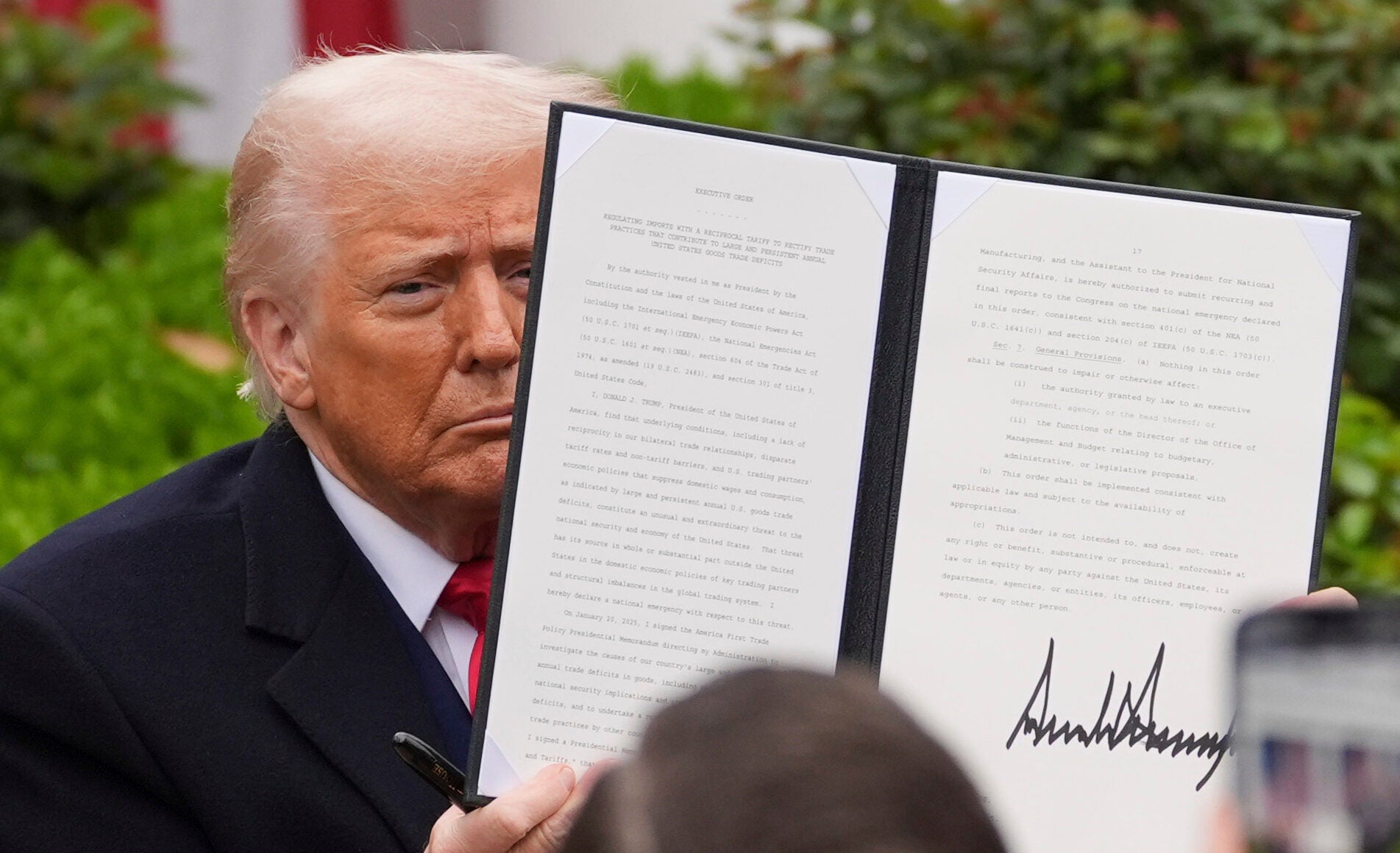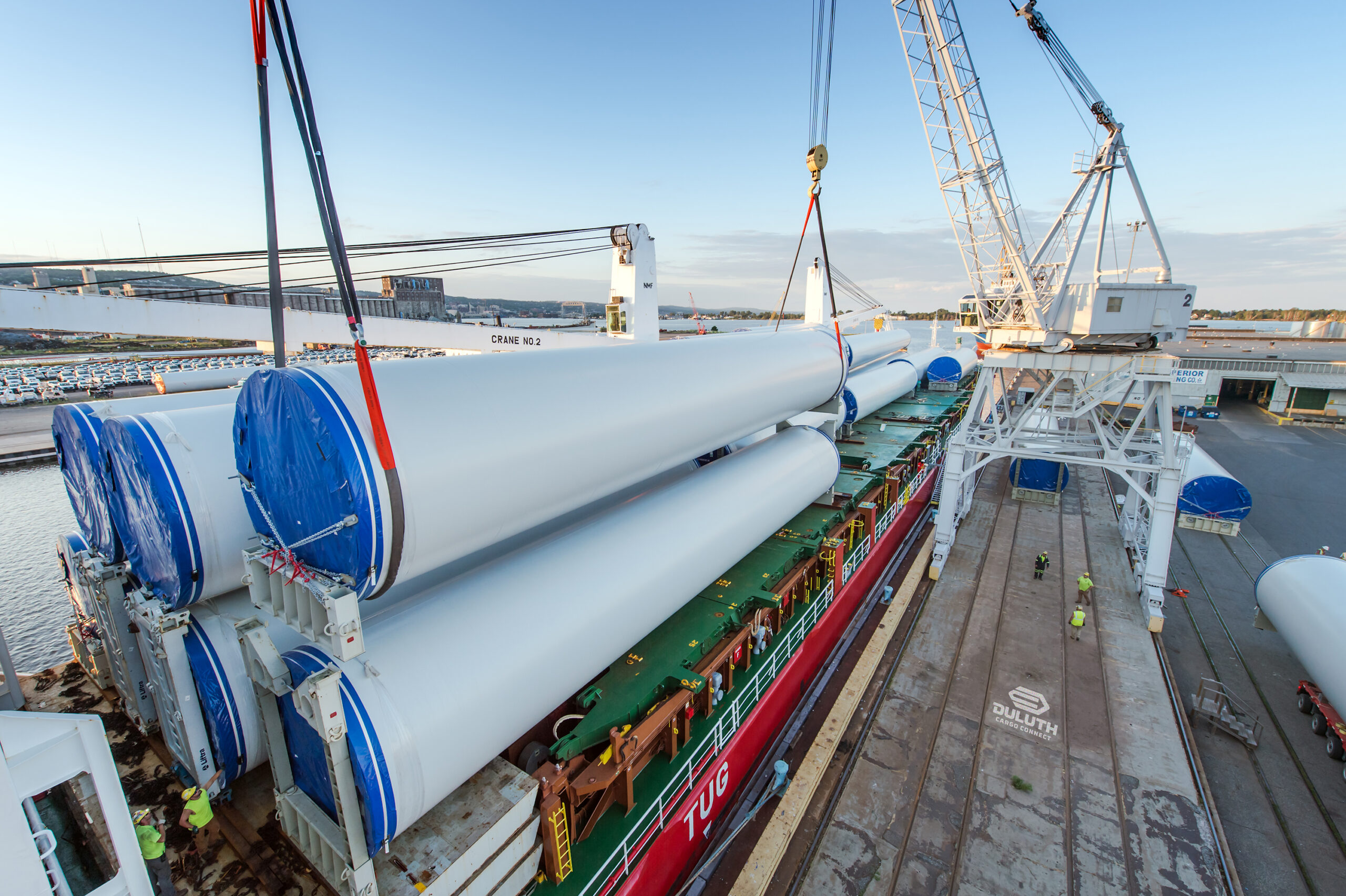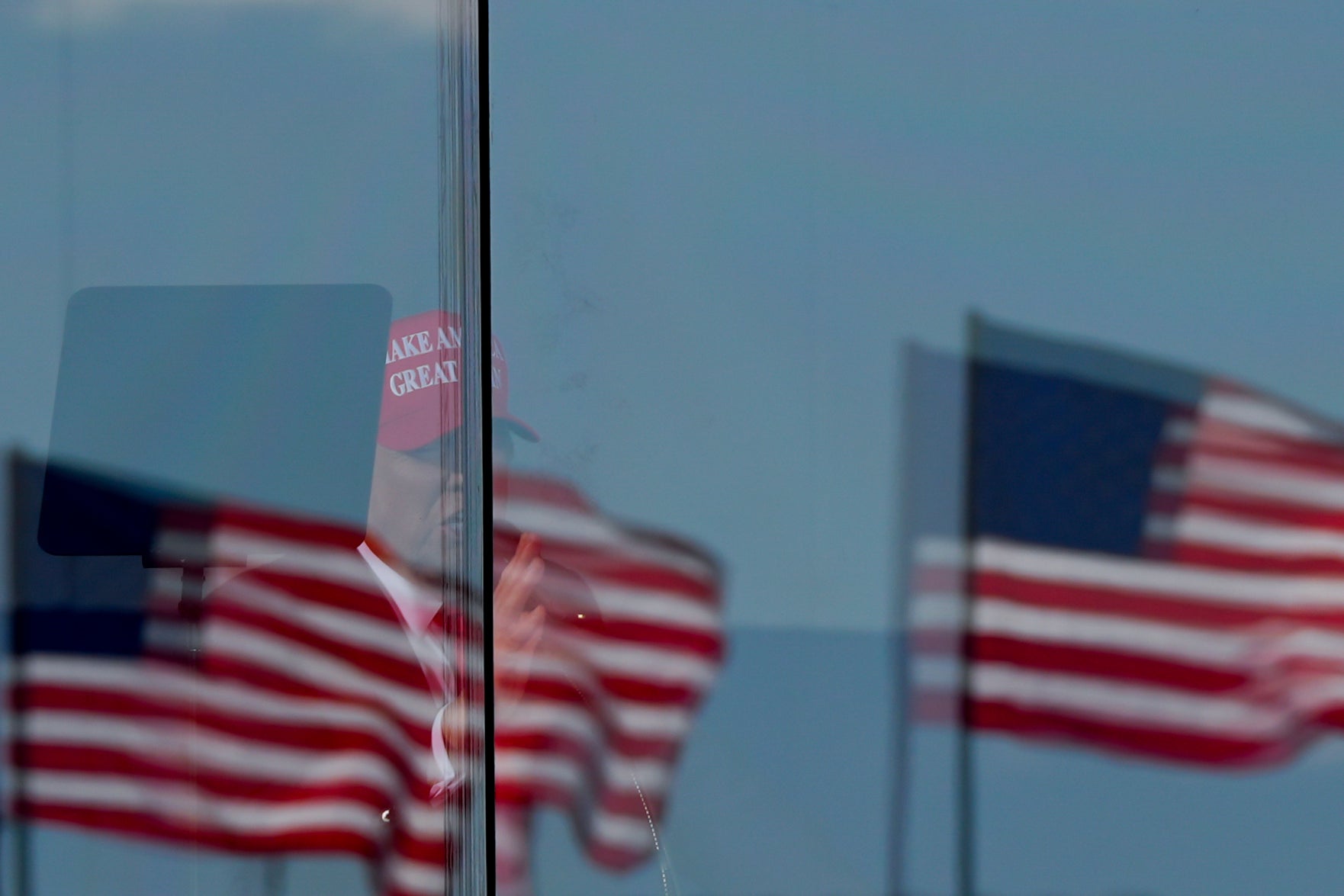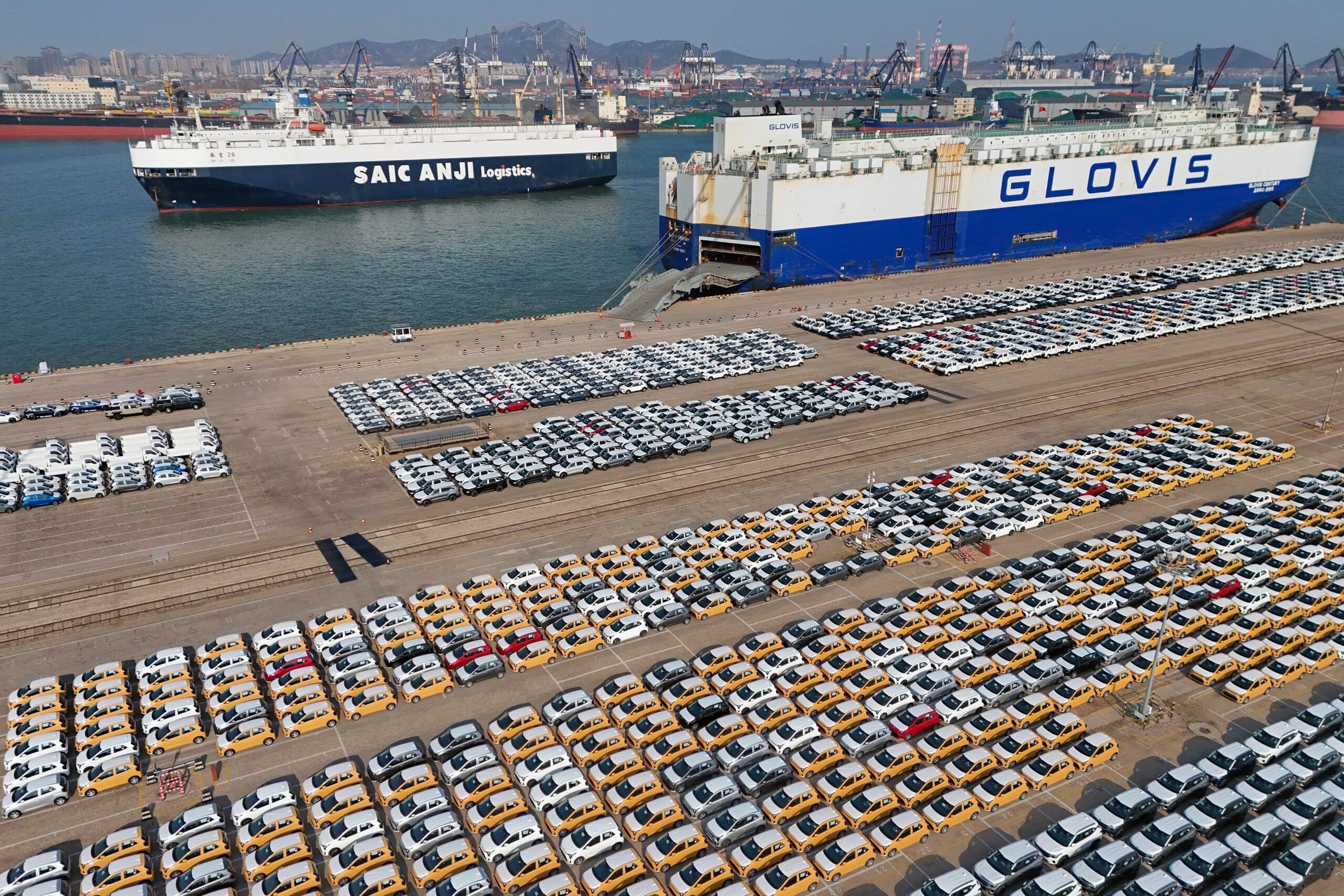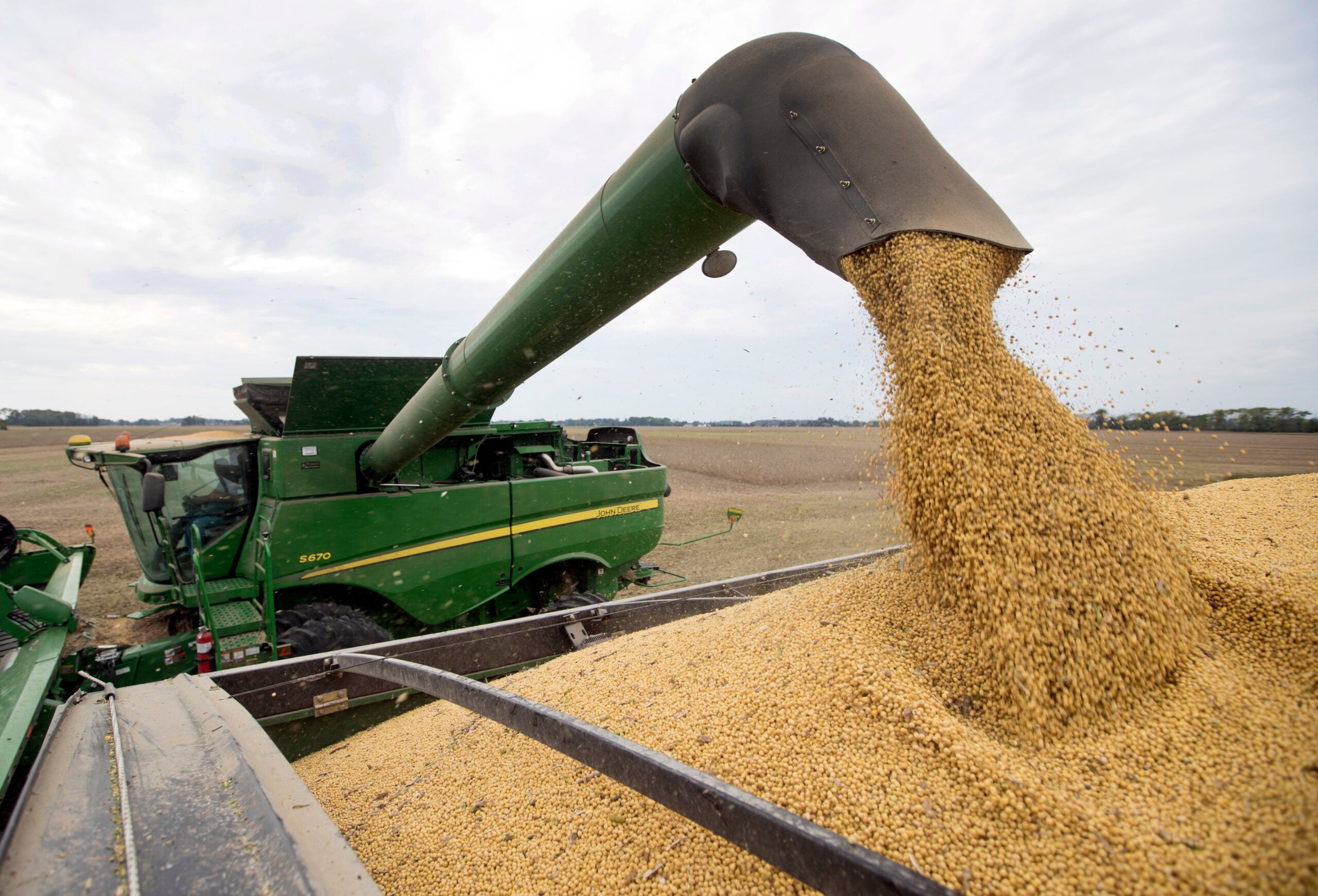Wisconsin leaders including Gov. Tony Evers and Secretary and CEO of the Wisconsin Economic Development Corporation Missy Hughes are currently on a trade mission in Germany, meeting with business leaders in Wisconsin’s sister state of Hessen.
Included in widespread tariffs issued by President Donald Trump on Wednesday is a 20 percent tariff on the European Union, which includes Germany. As one of Wisconsin’s strongest trading partners, Germany received nearly a billion dollars in exported goods from Wisconsin in 2023.
Hughes told WPR’s “Wisconsin Today” that fostering business relationships and promoting exports and international investments are top of mind as Trump’s tariffs take effect.
Stay informed on the latest news
Sign up for WPR’s email newsletter.
“The on-and-off of the tariffs has really caused a lot of uncertainty and, frankly, disappointment from the conversations that we’ve had with Germans,” Hughes said. “There’s a lot of feeling that for many, many years, we’ve had an excellent relationship across Europe, and real confusion about why things have changed.”
Hughes gave “Wisconsin Today” a clearer picture of how business leaders in Germany are feeling and how Wisconsin leaders are working to maintain trade ties across the Atlantic.
The following was edited for clarity and brevity.
Kate Archer Kent: Hessen is a central state in Germany. Why does Wisconsin have this long relationship with Hessen versus other parts of the country?
Missy Hughes: Some statistics say that over 40 percent of Wisconsinites have a relationship to Germany, whether it’s an ancestral relationship or a business relationship. When you look at the state of Hessen, we’re really a lot alike. There’s manufacturing, there’s agriculture, there’s innovation and entrepreneurship happening. So there’s really lots of shared values and connections that we continue to develop year over year.
KAK: Your trade mission is coming as President Trump has announced import taxes ranging from 10 to 49 percent on goods shipped to the U.S. There’s a new 20 percent tariff on the European Union. What effect could these tariffs have on the negotiations and the meetings you’re having in Germany?
MH: The tariffs have been a huge topic of conversation even before last night’s announcement. It brings unpredictability and instability, and that’s frustrating. Our businesses that are with us really want to explore the global marketplace and see lots of opportunity, and they see the tariffs as a potential obstacle to that chance.
KAK: Are your meetings in the country about establishing new business and closing deals, or is it more to educate and pitch about what Wisconsin could offer German firms?
MH: Often it’s about that first step in creating relationships. Our businesses will visit distributors or other types of marketers and take that opportunity to offer what their products are, and then hopefully develop that relationship.
Surprisingly enough, our businesses are often coming back with purchase orders and with real, concrete deals for us as we’re talking to businesses who have already invested in Wisconsin.
KAK: President Trump has said these tariffs are necessary to counter trade barriers that other countries are imposing on the U.S. Has Wisconsin encountered significant trade barriers before these sweeping tariffs?
MH: Wisconsin, like many other states, has taken advantage of free trade, especially across the Mexican and Canadian borders. We have products that move into Mexico, have added value in Mexico, and then they come back across the border.
These businesses have real concerns about the supply chain they’ve created. They are not looking forward to disrupted supply chains and added costs, because that just adds instability and risk into their businesses. Some were really growing and excited about the future, and this has had a chilling effect on some of those prospects.
KAK: So if supply chains do change radically, if companies say, “Yes, we’re going to start shoring our manufacturing due to the pressure from these tariffs,” is Wisconsin ready to get companies up and running fast with their production lines, regardless of the industry?
MH: We had already seen a fair amount of onshoring happening, both post-COVID and because of a lot of the “Buy America” provisions that we saw in the Inflation Reduction Act and during the Biden administration. So we had a lot of positive momentum.
I think the concern is that positive momentum is going to be stalled because of not only the tariffs, but also fears of a recession. We just heard [Thursday morning] that the stock market is down 1,400 points.
Here in Germany, a lot of the conversation has been a fear of recession, and when you look at a state like Wisconsin that produces big pieces of machinery, we produce big investments for companies. The fear is that everyone will slow down on those investments and we’ll see pain.
KAK: What will WEDC as an agency be doing differently as it works with Wisconsin companies, especially companies that are working with overseas clients?
MH: As things have been really changing on a daily basis, it’s been hard to provide good, solid paths forward for our businesses. But as we see these things lock into place and understand what the impacts are, then we can help our companies explore new opportunities and understand the risk and how to mitigate the risks.
Wisconsin Public Radio, © Copyright 2025, Board of Regents of the University of Wisconsin System and Wisconsin Educational Communications Board.
